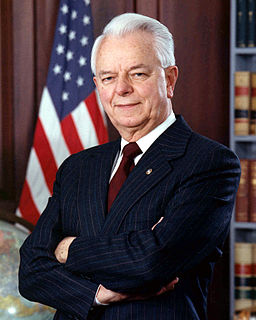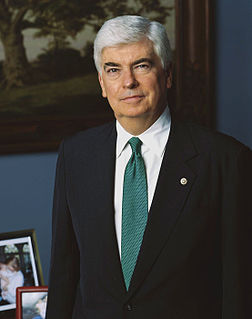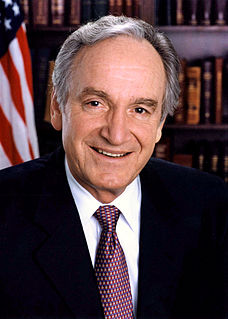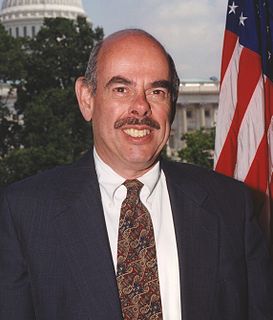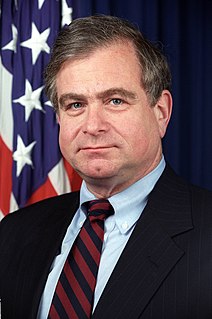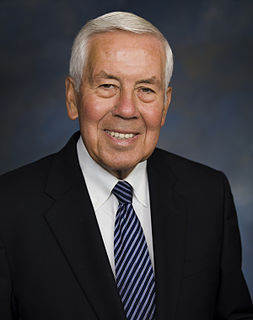A Quote by Anna Lindh
We need the UN, to deal with the threats to our common security from nuclear, chemical and biological weapons, not only in the case of Iraq. They must be tackled by the international community together, by strengthening conventions, treaties and agreements.
Related Quotes
Iraq both poses a continuing threat to the national security of the United States and international peace and security in the Persian Gulf region and remains in material and unacceptable breach of its international obligations by, among other things, continuing to possess and develop a significant chemical and biological weapons capability, actively seeking a nuclear weapons capability, and supporting and harboring terrorist organizations.
The last UN weapons inspectors left Iraq in October of 1998. We are confident that Saddam Hussein retains some stockpiles of chemical and biological weapons, and that he has since embarked on a crash course to build up his chemical and biological warfare capabilities. Intelligence reports indicate that he is seeking nuclear weapons.
It [the intelligence service] concludes that Iraq has chemical and biological weapons, that Saddam has continued to produce them, that he has existing and active military plans for the use of chemical and biological weapons, which could be activated within 45 minutes, including against his own Shia population; and that he is actively trying to acquire nuclear weapons capability.
There is no question that Iraq possesses biological and chemical weapons and that he [Saddam Hussein] seeks to acquire additional weapons of mass destruction, including nuclear weapons. That is not in debate. I also agree with President Bush that Saddam Hussein is a threat to peace and must be disarmed, to quote President Bush directly.
What is the only provocation that could bring about the use of nuclear weapons? Nuclear weapons. What is the priority target for nuclear weapons? Nuclear weapons. What is the only established defense against nuclear weapons? Nuclear weapons. How do we prevent the use of nuclear weapons? By threatening to use nuclear weapons. And we can't get rid of nuclear weapons, because of nuclear weapons. The intransigence, it seems, is a function of the weapons themselves.
Whereas Iraq has consistently breached its cease-fire agreement between Iraq and the United States, entered into on March 3, 1991, by failing to dismantle its weapons of mass destruction program, and refusing to permit monitoring and verification by United Nations inspections; Whereas Iraq has developed weapons of mass destruction, including chemical and biological capabilities, and has made positive progress toward developing nuclear weapons capabilities
He has systematically violated, over the course of the past 11 years, every significant UN resolution that has demanded that he disarm and destroy his chemical and biological weapons, and any nuclear capacity. This he has refused to do. He lies and cheats; he snubs the mandate and authority of international weapons inspectors; and he games the system to keep buying time against enforcement of the just and legitimate demands of the United Nations, the Security Council, the United States and our allies. Those are simply the facts.
In the 21st Century, the community of nations may see more and more of this very kind of threat that Iraq poses now - a rogue state with biological and chemical weapons. If we fail to respond, Saddam and all those who follow will believe that they can threaten the security of a vital region with impunity. But if we act now as one, we will send a clear message to would-be tyrants and terrorists that we will do what it takes to protect our security and our freedom in this new era.
From the prophets' dreams of the time when nations would beat their swords into plowshares to today's aspirations of a nuclear-weapons-free world, we have sought to avoid armed conflict and not yield to despair in the search for universal peace. The nuclear threats from Iran, North Korea, and terrorists can only be overcome through international cooperation. We call upon Congressional leaders and those worldwide to join together to ensure the fulfillment of these long-overdue initiatives and the achievement of a safer future without nuclear weapons.



